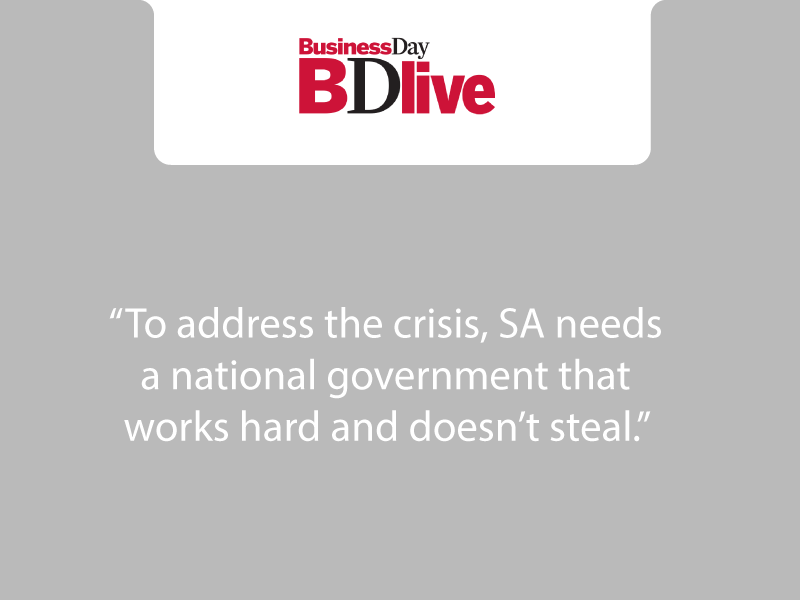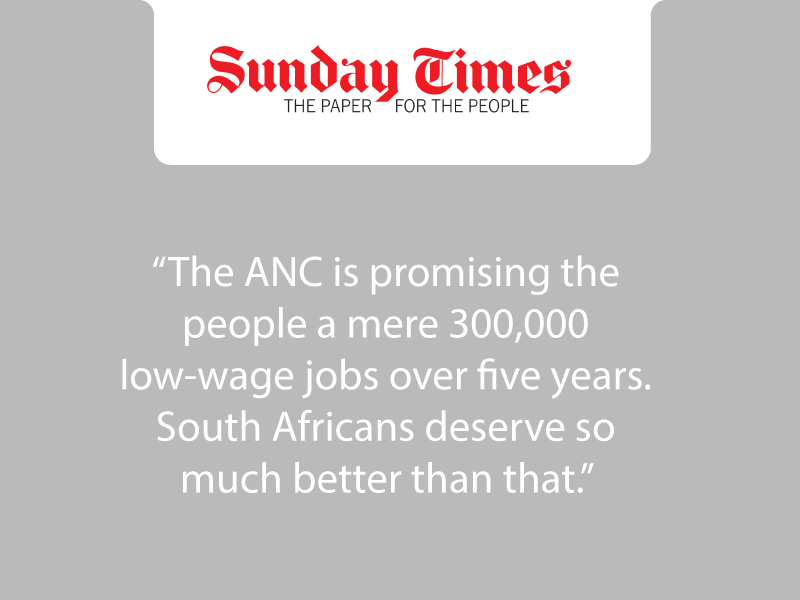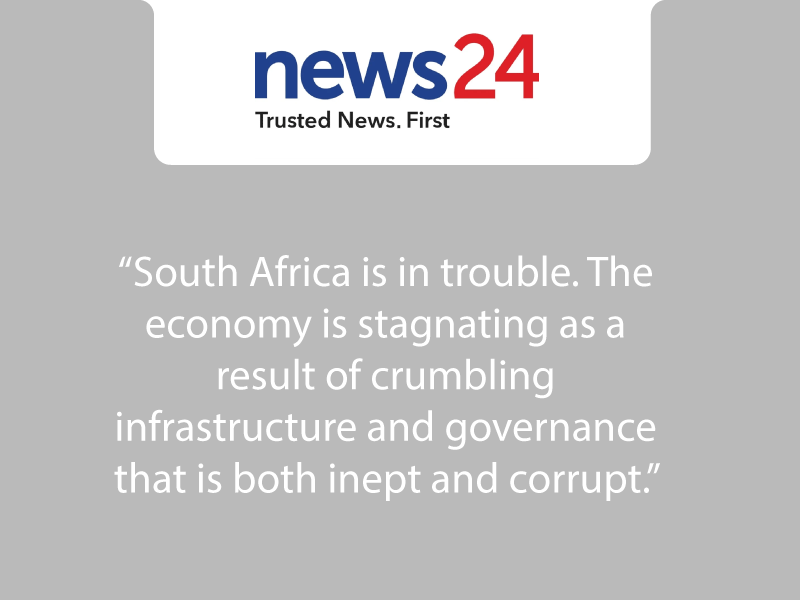 Minister causes confusion by backing inclusive growth while lending his ear to proponent of zero-sum class war
Minister causes confusion by backing inclusive growth while lending his ear to proponent of zero-sum class war
Malusi Gigaba is a confusing figure. What exactly is he saying? Immediately after his appointment as finance minister, he declared his commitment to a programme of “radical economic transformation”, a phrase that, if it means anything at all, must mean policies that are different — radically different? — from those that preceded them.
A few days later, after the first ratings agency downgrade of our sovereign debt, he professed himself shocked that anyone might think he would do anything other than continue the policies of his predecessor. “While the executive leadership of the finance portfolio has changed,” a media statement from the Treasury read, “government’s overall policy orientation remains the same.
“Dropped from these later statements was the language of radical economic transformation, now replaced by a frequently repeated commitment to his predecessor’s goal of “inclusive growth”. Can this volte-face be taken at face value? It’s impossible to know, because, at about the same time as Gigaba’s verbal gyrations, the man he was to soon appoint as his adviser, Prof Chris Malikane, was drafting a document that reflects a view of the world that simply cannot be squared with the idea of inclusive growth.
Malikane’s manifesto does not quite call on workers of the world to unite in support of SA’s tenderpreneurs, but it comes mighty close.
“The tenderbased black capitalist class is not likely to win [its] battle without the support of the mass of the black and African working class,” it argues, “insofar as [it] has begun the war against the dominant white monopoly capitalist class, it has to be encouraged.”
The zerosum imagery of class war suffuses Malikane’s analysis. He is convinced, for example, of the omnipotence of “white monopoly capital”. The first paragraph of his document celebrates the “fast-approaching” end of the first phase of the democratic revolution, a period, he writes, that has been “characterised by the unfettered dominance of white monopoly capital over all levers of power in all spheres of society”.
Fearing, perhaps, that he might not be understood literally, Malikane provides a helpful list of the entities supposedly under white monopoly capital’s “unfettered dominance”. These include (obviously) the private sector but also (less obviously) “all apparatuses of the state such as government, the universities, the courts, the press, the security forces and political parties”. One wonders when the captains of industry have the time to run their companies, while also mobilising and monitoring this vast hegemony!
Nor does the silliness end there, with Malikane all but declaring post-apartheid SA’s presidents to be traitors. He writes that white monopoly capital has used “creditbased” black economic empowerment “to capture the top leadership of political parties, particularly the leadership of the ruling party”. To this, he adds that “the cornerstone of the ownership and control of the state by white monopoly capital has always been the National Treasury, its associated agencies and the Reserve Bank”, “leading officials and political principals” of which “have always been appointed by white monopoly capital and legitimated through the ruling party process”.
It is very hard to see how the appointment of a ministerial adviser with views of this kind is compatible with Gigaba’s proclaimed commitment to policy continuity and to inclusive growth. Consider, in this regard, the policy priorities set out in the Treasury’s 2017 Budget Review, released barely two months ago, the opening chapter of which is entitled Transformation for Inclusive Growth. Apart from celebrating the steady consolidation of public spending, the predictability, progressivity and stability of public spending and the robust independence of institutions such as the Reserve Bank, the priorities identified include:
- Safeguarding the country’s investmentgrade credit rating through structural reforms;
• Finalising various pieces of legislation to provide the certainty needed by investors in mining and agriculture;
• Concluding the transition to digital television signals and allocating spectrum to broadband services to reduce the cost of bandwidth;
• Expanding the independent power producer programme to accelerate employment growth and create opportunities, especially for blackowned firms;
• Ensuring that economic regulatory functions are performed effectively and that they reinforce our adherence to global standards in financial sector regulation;
• Tackling shortcomings in state infrastructure planning and execution; Improving education and skills development;
• Strengthening competition laws to lower barriers to business entry and expansion, while increasing private sector participation in sectors dominated by the public sector;
• Providing support and incentives for labourintensive sectors; and
• Overcoming cities’ spatial fragmentation. This is not a list with which everyone would wholeheartedly agree. And it may, in any event, be too long and diffuse for effective implementation. Certainly, the Centre for Development and Enterprise (CDE) would have some reservations about priorities (or lack thereof) and the precise formulation used in relation to some of the issues identified. Nevertheless, this is clearly a programme aimed at mass inclusion premised on rapid employment growth facilitated by increased investment and economic growth.
This programme is totally incompatible with Malikane’s approach. His “strategy” culminates in a list of priorities that would make Hugo Chavez proud. It starts with the need for a “New Economic Plan” (a phrase capitalised in the Leninist way) that would include:
The nationalisation of the Reserve Bank (along with all other banks), as well as the mining industry and SA’s insurance companies;
• The expropriation without compensation of all land, the occupiers of which would immediately have to pay rent;
• The criminalisation of all violations of SA’s labour laws; and The dramatic expansion of free public services (including “decolonised education”).
It would be an exaggeration to say that Malikane’s priorities overlap with none of those identified as essential to the pursuit of inclusive growth in the Treasury’s Budget Review — both, for example, express a desire to see monopoly power eliminated; both would like to see black-owned business get a larger slice of public spending. However, the overlaps that might exist are not the point.
Malikane casually proposes the overthrow of pretty much every aspect of economic policy as it has been practised since 1994. The Treasury’s proposals seek to chart a left-of-centre path through a more or less orthodox programme of structural reform premised on private property, markets, sound institutions and macroeconomic stability. There is simply no way these radically different approaches can be reconciled.
Gigaba is — to put it politely — misleading himself and the rest of us if he says that such a reconciliation is even conceivable.
Perhaps the most striking gap between Malikane’s views and those articulated in the Budget Review is not in the detail of the policy proposals but in the fundamental assumptions. For Malikane, policy is a reflection of the balance of warring classes and his priorities are premised on the classically Marxist idea that progress will come when the expropriators have been expropriated. He believes, in effect that ripping assets out of the hands of their current owners is a precondition for social progress, a conclusion that, however viscerally satisfying it might be, is at odds with all historical evidence.
All one need do, in this regard, is think through the effect of nationalisation and expropriation policies in Venezuela in recent years: output collapse of devastating proportions, inflation, emigration, food shortages and a retreat into kleptocratic authoritarianism. One has to ask why this is the man the new minister of finance has chosen to be his adviser. Radical expropriation is diametrically opposed to the idea of inclusion. A commitment to inclusive growth is a concept that implies that policies need not be zero-sum in character. Optimal policies almost never are.
The Treasury’s repeated commitment to improving investor certainty and business confidence makes it clear that the programme of inclusive growth it advocates is founded on certain key understandings. These insights build on the experience of the past 23 years of democratic government: without the private sector and the appropriate environment for investment, the growth that is vital for expanding opportunities and wealth and the inclusion of millions of South Africans left out of the modern economy will never be forthcoming. The Budget Review says as much more than once. The Treasury, in other words, has understood that the gains business might make are not at the expense of the mass of workers but a precondition to the expansion of employment and the reduction of poverty.
To get a feel of how distant Malikane’s expropriation first approach is, consider that in eight pages of text supposedly about economic policy, the phrase “economic growth” does not appear even once; the word “employment” appears six times, on five of those occasions it is as a qualifier for the word “equity”.
It is impossible to reconcile Malikane’s views with those of the Treasury. In this context, it is reasonable to ask which of two very different views Gigaba adheres to. Business leaders and all South Africans need to know. Will the real Malusi Gigaba please stand up?
- Ann Bernstein is executive director of the CDE.




